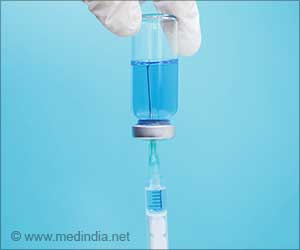The federal agency announced through its web site, on 14th April, that the US Food and Drug Administration has approved the drug Vivitrol (TM), for the treatment of alcoholism
The federal agency announced through its web site, on 14th April, that the US Food and Drug Administration has approved the drug Vivitrol (TM), for the treatment of alcoholism.
According to foodconsumer.org, Vivitrol was developed by Alkermes, Inc., which will be responsible for the manufacturing of the drug while Cephalon will take on the marketing and sales for the drug under an agreement signed June 2005 between the two companies.The companies in a news release said the drug would be made available at a dose of 380 mg per intramuscular injection in the United States by the end of June 2006. Analysts estimate the sales for Vivitrol will fall between $300 to 500 million a year.
Vivitrol, the once-a-month injectable medication, is intended for outpatients for treatment of alcoholism. The patients should be able to abstain from drinking in an outpatient setting when initiating the treatment. Also, the drug should be used in coordination with psychosocial support such as counseling or group therapy, according to the companies.
"Vivitrol is the first once-a-month medication for alcohol dependence that ensures patients get the benefit of medication over the entire month," stated Richard Rosenthal, M.D., from St. Luke's-Roosevelt Hospital Center, New York, and Columbia University College of Physicians and Surgeons. "With Vivitrol, physicians have a new option to help treat patients with alcohol dependence, and patients have new hope to help them in their battle with this devastating disease," he added.
Alcohol dependence or alcoholism is a chronic disease that comes with common symptoms including cravings for alcohol, loss of control over alcohol drinking, withdrawal symptoms and an increased tolerance for alcohol. Alcohol dependence results in an economic burden to society that costs approximately $185 billion annually in the U.S.
Vivitrol suppresses alcohol dependence by binding to opioid receptors in the brain, resulting in the blockade of the neurotransmitters that are associated with alcohol dependence. This blockade may help patients reduce alcohol consumption although the exact mechanism responsible for the reduction in alcohol consumption is not well understood.
Advertisement
Among patients who abstained from drinking in the week prior to the treatment, those treated with Vivitrol were more likely to maintain complete abstinence (without relapse) and experienced a greater reduction both in drinking days and heavy drinking days, compared to the placebo-treated group over the six-month treatment period.
Advertisement
Vivitrol should never be given in excessive doses, which can cause hepatocellular injury when given in excessive doses. Because of the hepatotoxic effects, use of the drug in patients with acute liver disease or liver failure should be carefully considered. Likewise, patients who experience symptoms and or signs of acute hepatitis should discontinue using the drug and seek medical attention immediately. Patients should be warned of the hepatotoxic effects associated with Vivitrol.
"Vivitrol is contraindicated in patients receiving opioid analgesics, with current physiologic dependence on opioids, in acute opioid withdrawal or who have previously exhibited hypersensitivity to naltrexone, PLG or any other components of the diluent," Alkermes and Cephalon said in a statement. Patients must be opioid free for at least seven to 10 days before starting VIVITROL treatment because VIVITROL is a potent opioid antagonist. "Any attempt to overcome the opioid blockade produced by Vivitrol using exogenous opioids may result in fatal overdose," the companies said.
"Should a patient receiving Vivitrol develop progressive dyspnea and hypoxemia, the diagnosis of eosinophilic pneumonia should be considered. Patients should be advised to seek medical attention for injection site reactions such as pain, tenderness, induration or pruritus that do not improve within one month following the injection. Alcohol dependent patients, including those taking Vivitrol, should be monitored for the development of depression or suicidal thinking," Alkermes and Cephalon said.
Some 18 million Americans abuse or are dependent on alcohol, or alcoholic and approximately 2.2 million of them seek treatment for their alcohol problems, yet more than 75% of these patients receiving currently available traditional therapies relapse back to drinking within the first year of beginning treatment. Vivitrol can help these patients reduce alcohol consumption.









